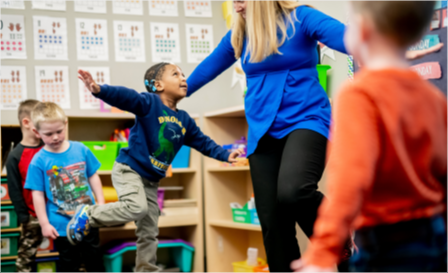Research Efforts
The education and rehabilitation of children who are deaf or hard of hearing (DHH) is informed by ongoing research related to hearing technology and evidence-based practices. Through the Carle Pediatric Hearing Center and CAOS, the ECHO program is committed to providing medical, audiological, rehabilitational and educational intervention based on the most current evidence-based practices. Additionally, we’re committed to contribute to the current knowledge in this field by conducting research studies at Carle and through collaborations with other universities, hospitals and schools.
CAOS has been contributing annual outcome data to the Listening and Spoken Language Data Repository (LSL-DR) hosted by OPTION, an international coalition of programs that advance listening and spoken language education by supporting and promoting educational options for children, measuring outcomes, establishing and sharing best practices, and raising awareness through advocacy. As an OPTION member program, CAOS has IRB approval through both Carle and the University of Miami to collect, analyze, present and publish information about outcomes for children who are deaf and hard of hearing that use listening and spoken langauge to communicate. Research on outcomes of students at CAOS as well as within the broader OPTION coalition has been presented at various national and international conferences. Click here to review selected presentations and papers.
Additionally, CAOS has facilitated research projects with graduate students in audiology and speech-language pathology from the University of Illinois, Eastern Illinois University and Illinois State University. Topics for these research projects have included development of vocabulary and reading skills in children with hearing loss, and examination of the progress of children with hearing loss and other secondary learning issues.
Through the Pediatric Hearing Center we have been involved in several FDA studies regarding approval of new cochlear implant devices and expansion of cochlear implant candidacy criteria since the ECHO program’s inception in 1987.
Charitable gifts help fund our outreach and research efforts.
MAKE A DONATION
